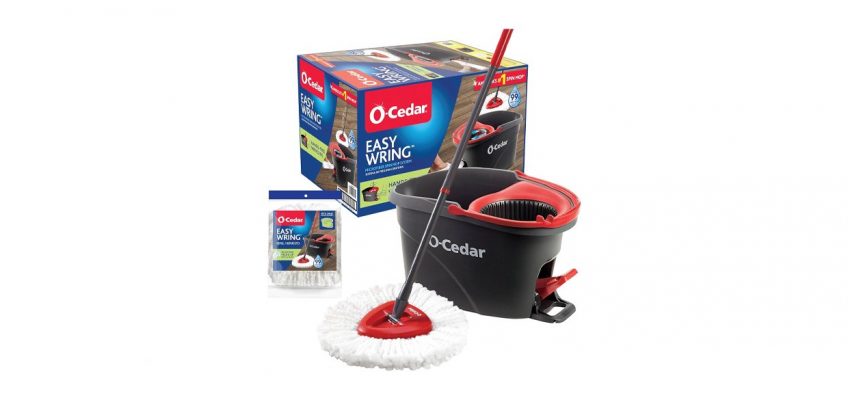Dorothy McIntyre, 88, tucked a vintage basketball under her arm on Thursday as she walked through the Minnesota portion of a new exhibit about girls at the Minnesota History Center.
“Wow!” McIntyre said as she gazed at the photos, uniforms and ephemera that illustrate the history of girls basketball in our state.
McIntyre — a longtime advocate for girls and women in sports — is part of that sports history, as visitors will learn in this corner of “Girlhood (It’s complicated),” an exhibit created by the Smithsonian that is now making a stop in Minnesota.
The exhibit kicks off on Saturday with a grand opening celebration that includes crafts, music and sports.
Thousands of students are expected to attend the exhibit during the 2024-25 academic year; it wraps up on June 1.
Here are 5 things worth noting:
Origins
The exhibit has a connection with women’s suffrage, which is especially timely with the pending presidential election: “Girlhood” was created to coincide with the 100th anniversary of the ratification of the 19th Amendment to the U.S. Constitution, which guarantees the right of women to vote.
Because that anniversary was marked in 2020 — during the pandemic — this exhibit was initially a virtual one.
With interactive displays, media components and more than 100 objects from the Smithsonian collection and additional items from Minnesota, the exhibit explores how young women have continuously influenced politics, education, work, health and fashion through American history.
After the original exhibition ended in 2023, “Girlhood ” became a traveling exhibit with stops in Indiana and Ohio before its current installation in St. Paul.
Minnesota and basketball
A display of Minnesota girls basketball artifacts and stories in the exhibit “Girlhood (It’s complicated)” at the Minnesota History Center in St. Paul on Thursday, Sept. 5, 2024. Created by the National Museum of American History and the Smithsonian Institution Traveling Exhibition Service, the exhibit examines issues related to being a girl in the United States and has local Minnesota girls basketball section featuring memorabilia and stories from Minnesota girls basketball players. (John Autey / Pioneer Press)
“No person in the United States shall, on the basis of sex, be excluded from the participation in, be denied the benefits of, or be subjected to discrimination under any education program or activity receiving Federal financial assistance.”
— Title IX of the Education Amendments of 1972.
It was 1976, the year that Barbara Walters became the first woman to co-anchor a national news program in prime time; the summer that Romanian gymnast Nadia Comaneci scored seven perfect scores of 10 in the Olympics (a first); and the year that “The Bionic Woman” starring Lindsay Wagner was a sci-fit hit on television.
It was also the year that the girls basketball team of St. Paul Central High School won the championship of the inaugural winter state tournament for girls basketball, Class AA.
In the Minnesota portion of the exhibit, McIntyre points out the display that includes photos and other memorabilia of this historic event for St. Paul.
It’s not just history to her, it’s a memory: McIntyre, a teacher, later served as associate director for 32 years at the Minnesota State High School League.
McIntyre is also the co-author of “Daughters of the Game: The First Era of Minnesota Girls High School Basketball, 1891-1942.” First published in 2005, more copies have been printed to serve as a companion to this exhibit (look for them in the museum store).
The oral histories and photos that her co-author, Marian Bemis Johnson, first sought out and compiled tell the story of how Minnesota girls once got to play the game — and why that was taken away from them in the mid-20th century.
(Girls actually played Minnesota’s first recorded basketball game in 1893, according to the exhibit materials.)
Now, these early photos and stories of young women’s basketball in Minnesota make up a portion of the Minnesota portion of “Girlhood.”
“It’s beyond belief that this would end up in the Smithsonian,” McIntyre says as she looks at the photos she and Johnson gathered so they would not be lost to time.
Many of those early athletes have now passed away, but their lives and stories are preserved here.
Perhaps the girls of today will be able to relate to the rules placed on the girls’ bodies: For example, McIntyre points out how the girls in one vintage team photo had scrunched up the mandatory bloomers they loathed to above their knees, so the fabric couldn’t be seen in the photos.
“They wanted to wear shorts,” McIntyre says. “There were a lot of different rules for girls.”
Related Articles
Artist profile: Budding St. Paul playwright saw own choreopoem for Black teens produced this summer
Fringe review: ‘Intimate and Appropriate’ aims to offend, but with no insightful payoff
‘Hilo de la Sangre,’ a Latin art exhibit on display at the MN Museum of American Art in St. Paul
First all-women St. Paul City Council inspires crochet project, museum exhibit
Hamline University settles lawsuit over showing of Prophet Muhammad in art history class
There are modern athletes represented here, too — and their uniforms, including the Cedar-Riverside Lady Warriors’ uniform from 2015. The culturally appropriate sportswear was designed with the Muslim middle schoolers in mind, with the help of their coaches, the community and the University of Minnesota.
The ball was in Minnesota’s court when selecting the basketball theme for this exhibit.
“We asked, what could we add here in Minnesota to add to this story?” said Annie Johnson, the museum manager at the Minnesota History Center.
It made sense to pick this sport, she says.
“We had this great collection of objects that related to girls and basketball,” Johnson says.
Clothing
A exhibit of 1950’s girls fashion at the exhibit, “Girlhood (It’s complicated),” at the Minnesota History Center in St. Paul on Thursday, Sept. 5, 2024. (John Autey / Pioneer Press)
On Thursday, Johnson stood with Kat Halpern, project director of the Smithsonian Institution Traveling Exhibition Service, looking at a gray dress that appears to have been handmade with care.
The puffy-sleeved frock with stars and stripes — displayed behind glass in the education portion of the exhibit — belonged to Minnijean Brown, who was 16 years old in 1957 when she wore it as she walked into Little Rock Central High School. Brown was one of nine Black teenagers who integrated the school following the U.S. Supreme Court’s desegregation ruling in Brown v. Board of Education.
The gray dress is one of three that Brown donated to the Smithsonian, Halpern says. Because textiles are particularly delicate to the passage of time, it is rare for this kind of history to travel and to be on display.
“Standing in front of it is so powerful,” Johnson said.
Halpern agreed.
There’s just something, she says, about “the power of objects.”
There is other clothing throughout the exhibit, from jeans to quinceanera dresses, as well as a coloring activity highlighting some of the featured clothing.
‘Talkback cards’
Before museum-goers leave, they can fill out cards that pose these questions based on the themes of the exhibition, including:
What did you learn in school about how to be a girl?
(One response displayed: “Hide your period products, they’re embarrassing.”)
Did you or anyone in your family work as a child?
(One response: “I had my first job at 13 in my dad’s store — 3 dollars an hour.”)
What do you tell the world through your clothes?
(One response: “What sports teams I like + what musicians/bands I like!”)
Has someone else ever made a decision that affected your body?
(One response: “I had no say in my summer haircut when summer ended until I rebelled.”)
What do politicians need to know about girls today?
(One response, apparently quoting Tim Walz: “Mind your own damn business!”)
“All the cards will be collected and will come back to the Smithsonian and become part of the archives,” Halpern says.
Eventually, the responses are expected to become part of a book.
Grand opening
It’s a good weekend to check out the exhibit.
On Saturday, the day the exhibit opens, a grand opening celebration will be held from 11 a.m. to 3 p.m.
Highlights include a variety of crafts and entertainment, live music, dance presentations and lacrosse and baseball demonstrations. The Cass Lake-Bena Girls Robotics team will also be there.
‘Girlhood (It’s complicated)’
What: An exhibition at the Minnesota History Center, created by the Smithsonian and now traveling the nation, exploring how young women have influenced politics, education, work, health and fashion over the last 200 years.
Related Articles
Trail around White Bear Lake nearly complete, but Dellwood section poses challenge
Volunteers needed to harvest native prairie seeds from future Bayport school site
Skywatch: Summer stars hanging in there with Saturn on the rise
Review: Jon Pardi brings the party to the Minnesota State Fair Grandstand
Begin the weekend: Five free music events happening Thursday in St. Paul
Local highlight: A section on girls basketball in Minnesota.
When: The exhibit opens on Saturday and runs through June 1.
Grand opening: A celebration from 11 a.m. to 3 p.m. on Saturday includes activities, live music, dance presentations and baseball and lacrosse demonstrations and clinics.
Where: Minnesota History Center, 345 W. Kellogg Blvd., St. Paul.
Admission: General admission to the museum includes access to this exhibition. Admission ranges from $15 to $8 (children ages four and under get in free); museum members also pay no admission.
Info: Mnhs.org




